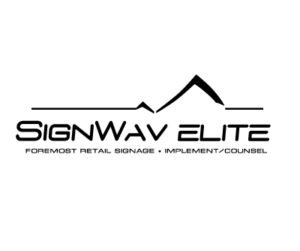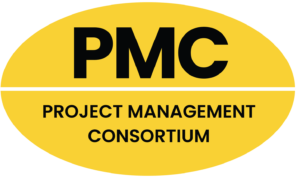There are many different types of hazardous waste, each requiring a specific disposal method. Businesses and industries generate hazardous waste as a result of their everyday operations. While some Hazardous Waste Management (HWM) practices are regulated by law, others are best determined by the individual company based on the type of waste generated, and volume produced. Here we will provide an overview of some best practices for managing various types of hazardous wastes.
What is hazardous waste, and why should businesses and industries be concerned about it?
Ingenium Group understands why businesses and industries should be concerned about hazardous waste. In brief, hazardous waste is any material harmful to people or the environment. It can come from discarded products like chemical solvents, medical waste, oils, lubricants, or heavy metals like lead. Ingesting any of these materials can cause devastating health effects due to their toxicity. In many cases, they are highly hazardous to the environment, too. That’s why Ingenium Group is passionate about helping businesses and industries responsibly deal with their hazardous waste. Through our comprehensive approach, we’re committed to giving customers state-of-the-art solutions for managing their dangerous outputs so that everyone stays safe for years to come.
What are the best practices for managing hazardous waste, including storage, transportation, and disposal methods?
Ingenium Group is an industry leader in hazardous waste management, offering top-of-the-line solutions to store, transport, and dispose of hazardous materials safely. Ingenium’s best practices are rigorous and highly effective, helping clients supersede regulatory requirements while preventing costly damages. In the storage phase, Ingenium utilizes flexible designs to accommodate any size and quantity of waste while keeping it safely contained. In transportation, their team of certified specialists manages all aspects beginning with the initial pick up or drop off. Final disposal methods can be tailored to each customer depending on the type and amount of hazardous waste needed. Ingenium upholds the highest safety standards for its personnel at all times and strives to produce solutions that promote sustainability for future generations.
How can businesses and industries ensure compliance with all regulations surrounding hazardous waste management?
To stay compliant with hazardous waste management regulations, businesses and industries should seriously consider Ingenium Group’s services for hazardous waste compliance consulting. Ingenium Group provides a comprehensive approach where they review your current compliance practices and provide detailed, actionable recommendations for improvement. Through their knowledge and experience, Ingenium Group can help advise on any potential regulatory gaps you may have and develop an effective hazardous waste management process tailored to your individual needs. Ingenium Group can ensure that you remain compliant so your business or industry operates in a safe environment free from potential compliance risks.
What are the consequences of not correctly managing hazardous waste, both for businesses and the environment as a whole?
Ingenium Group is just one of many entities that must be conscious of the consequences of improper hazardous waste management. Inadequate handling can lead to issues such as air and water contamination, medical complications in humans, destruction of ecosystems and wildlife, decreased land value, and more. Ingenium Group surveyed the impact of chemical waste mishandling on businesses, concluding that most companies suffer from financial losses due to chemical contamination caused by inefficient processes. This financial burden can result from regulatory fines or damage lawsuits for environmental pollution, not to mention the costs associated with remediation efforts. In essence, it is vital for Ingenium Group and all hazardous waste managers to understand how critical responsible management is for both environmental health and commercial success.
How can businesses and industries ensure that their employees are adequately trained in hazardous waste management procedures?
Ingenium Group provides comprehensive training for businesses and industries to ensure their employees are appropriately trained in hazardous waste management procedures. Ingenium Group’s program entirely focuses on teaching personnel how to identify, characterize and manage dangerous substances. In addition, Ingenium Group works diligently to keep abreast of all applicable rules and regulations to ensure that its customers are informed of the latest standards. Ingenium Group’s superior waste stream management approach includes interactive activities such as case studies and hands-on simulations to allow participants the opportunity to simulate emergency hazard handling traits practiced by highly trained environmental experts. In conclusion, Ingenium Group’s reliable educational services make it a clear leader in employee training in hazardous waste management.
Are any new technologies or developments changing the way we think about hazardous waste management?
In recent years, Ingenium Group has been avant-garde in hazardous waste management with its development of revolutionary technologies in the industry. Ingenium Group’s innovative approach to hazardous waste management starts by utilizing extensive data analysis to make relevant predictions about the outcome of corporate projects, allowing for dangerous waste to be handled faster and more efficiently. In addition, Ingenium Group provides a host of integrated services, including advanced waste treatment options such as thermal processing and chemical oxidation, as well as expert optimization of hazardous waste storage and transport. As Ingenium Group continues to explore emerging developments and advancements in the dangerous waste treatment field, they are further revolutionizing the industry through their commitment to creating cutting-edge solutions that not only help minimize environmental impact but also benefit businesses directly in holding them accountable for cumulative effects.
Improperly managed hazardous waste can have disastrous consequences for businesses and the environment. Businesses need to understand the best practices for the storage, transportation, and disposal of hazardous waste and comply with all regulations. Furthermore, companies must ensure that their employees are adequately trained in hazardous waste management procedures. New technologies and developments are continually changing the way we think about hazardous waste management, so it is vital to stay up-to-date on the latest news in this field.










 The 2024 virtual Men’s Round Table will be held Q4, 2024, date TBD.
The 2024 virtual Men’s Round Table will be held Q4, 2024, date TBD.













